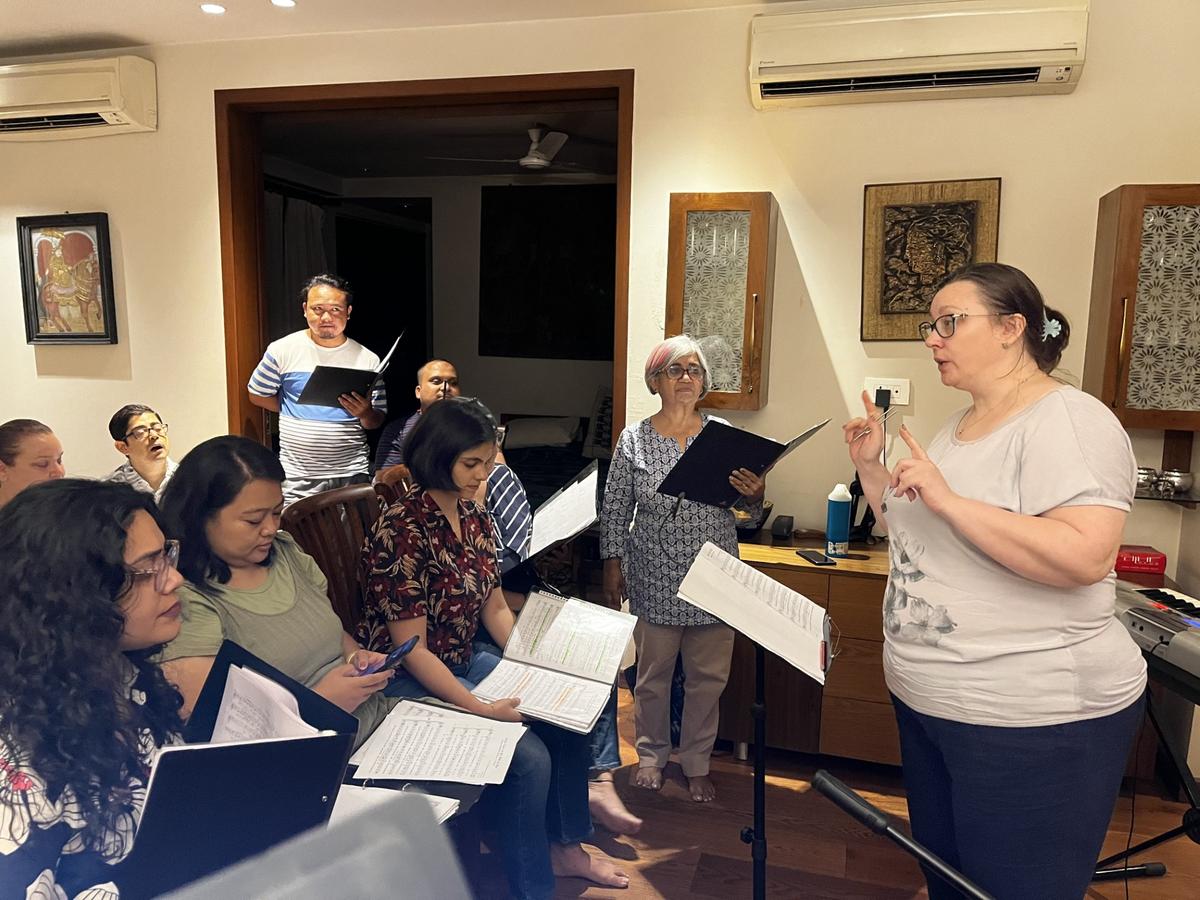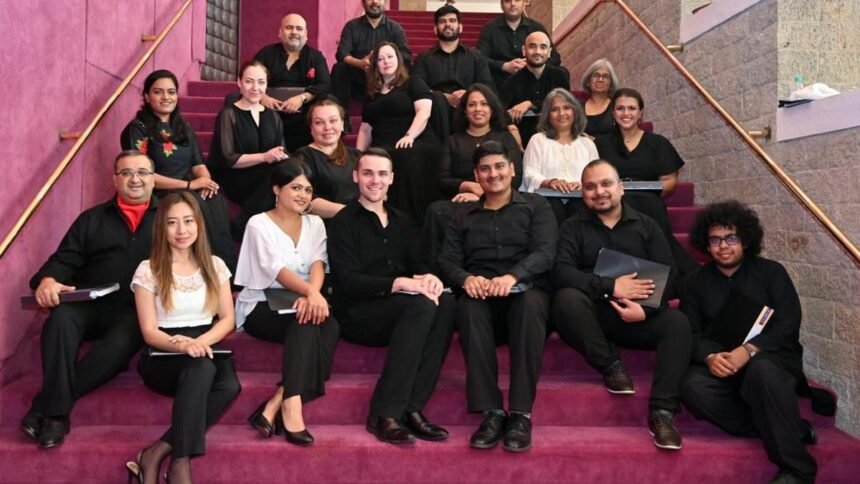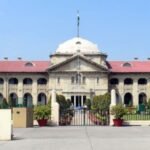Members of Delhi Chamber Choir during a performance at NCPA in Mumbai.
| Photo Credit: Special Arrangement
Fact 1: Choir singers wear a smile to keep their singing from sounding flat.
Fact 2: Choir singers not only harmonise their voices but also their heartbeat.
This is evident when you watch choral conductor Nadezda (Nadya) Balyan in action during a performance by the Delhi Chamber Choir (DCC). Trying to get the best sounds out of a group of over 20 Indian singers sitting in a semi-circle with their backs absolutely straight, their hearts beating in unison and eyes fixed on Nadezda, she instructs, “be stable. Breathe in, breathe out. Shut your ears and sing. Control your tone. Use your head voice, not your chest voice.”
An alumna of the Moscow State University of Art and Culture, Nadezda runs the Piano Forte School of Music and Art in New Delhi. She also directs the Delhi Chamber Choir as its main conductor for Western classical music.
She came to India in 2007, and has conducted more than 500 choirs across Russia and India. She has a Bachelor’s degree in Piano and Choir conducting from Tula Music College and a Master’s degree in Music Theory from Moscow State University of Art and Culture. Nadezda says she cannot imagine a life without music. “When I was a year old, I used to walk towards the piano and play some melody, and my grandfather would say, ‘Oh, she’s going to be a musician someday.’ I became a pianist first. Later I decided to try my hand at being a conductor. I also sought training in vocals along with music theory.”
Nadezda feels that conducting concerts is fascinating because it unifies performers; a conductor sets the tempo, shapes the collective sound of the ensemble, and manages the interpretation and pacing of the music. She adds, “the best part about conducting is to be able to teach and choose the repertoire.I get to spend hours researching and listening to great music in order to choose my favourite pieces and present them to the choir.’
Nadezda has developed a rare fusion in her performances, combining Western music with Hindustani raags; the latest one being the popular raag Desh. For the uninitiated, Desh has been the basis of iconic patriotic compositions, ‘Vande Mataram’ being the most identifiable one. Says Nadezda, “Time has now come when all the barriers are being broken and genres, styles and languages blended. New choir composers are collaborating with Indian musicians to come up with some amazing works.”
Nadezda conducts or composes for the Acapella form of choir singing. Acapella is a form of singing that does not use any instrumental accompaniment, which makes it the most difficult form of choir music. “You have to be clear and strong in your hearing, and your voice should be strong and steady enough to control the pitch. If you can’t hold your breath properly, your pitch will fail you. So believe me when I say, people who sing Acapella music are extremely hardworking.”
Nadezda’s school initially had a lot of expats who sang for the choir, but over a period of time, a lot of Indians have enrolled. “Choir-singing as a concept is yet to find a foothold in India. The journey has been slow. It took quite some time for DCC, too, to become popular. We usually explain to the audience what we are performing, who is the composer and why is the music the way it is.”

Nadezda (Nadya) Balyan during a workshop.
| Photo Credit:
Special Arrangement
She believes Indians are immensely talented. “Such good ear for music, and amazingly rich voices. People from Tamil Nadu and Kerala have excellent base in their voice.”
Nadezda has travelled to Mumbai with her troupe for shows. She feels Mumbai is more open to Western music as compared to Delhi. After Mumbai, she feels Bengaluru is the best city for Acapella.
Nadezda admires the musicians of Chennai too. ‘Singer-composer Kalyani Nair is excellent. Along with Western classical music, she is conversant with Hindustani music as well. I think Chennai is lucky to have a lot of good musicians in the conservatory as well. And A.R. Rahman and L. Subramanian have given such amazing compositions to the world.”
Like most creative enterprises, choirs too suffer from lack of funds, and that’s one reason why Nadezda isn’t able to perform in other Indian cities. “We don’t earn enough money to pay our singers and book the venue.” She hopes fusion concerts will eventually swing the balance in their favour.
Nadezda is continuously working to revive choir singing. ‘We conduct workshops for new entrants. We are also planning to take our performances to the South soon; hopefully our next destinations will be Bengaluru and Chennai.”









